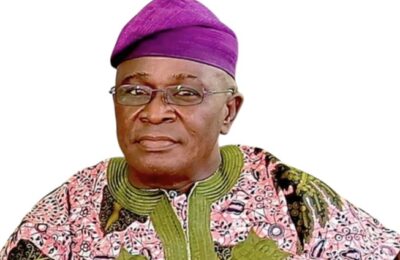In the grand amphitheatre of global governance, charisma often functions as the elixir that animates nations, catalyses mass movements, and reconfigures historical trajectories. Leadership—when tempered with allure, oratorical finesse, and symbolic gravitas—can ignite renaissance or, conversely, usher in systemic entropy. A juxtaposition of charismatic leadership across Nigeria, the United States, and Germany unveils deep variances in the socio-political psychology of nations and how such dispositions influence the arc of their development.
In Nigeria, charisma operates as an unrefined political currency—raw, resonant, and recurrently romanticised. The nation’s political odyssey from independence to the present Fourth Republic is replete with leaders whose magnetism outstripped their administrative mettle. Former President Goodluck Jonathan’s urbane gentleness won the hearts of many, yet his tenure faltered under allegations of inertia and administrative opacity. Muhammadu Buhari, perceived as a Spartan messiah in 2015, ascended with evangelical support, only for the zeitgeist of hope to devolve into pervasive disillusionment amid economic contraction and insurgency escalation.
President Bola Ahmed Tinubu, Nigeria’s current helmsman, epitomises an entirely different flavour of charisma—described by citizens as a high-level pepper, more pepperish than suya. His style, laced with cunning political calculus, has elicited both awe and angst. To many, he represents a sophisticated tactician whose political manoeuvrings are seasoned with fire and fervour, leaving a searing impact on national discourse. His charisma is not warm or fatherly—it is incendiary, divisive, and often pragmatic. Tinubu’s brand of leadership ignites debate like hot spice in a communal pot—stimulating, unforgettable, but not easily digested.
Charisma in Nigeria frequently supersedes policy profundity. Political campaigns mimic revivalist crusades, replete with eulogistic chants, gyrating crowds, and a sycophantic celebration of personas over ideological rigor. In a polity fractured by institutional fragility and endemic corruption, the electorate often gravitates toward quasi-messianic figures who promise salvation in lieu of structural reform. Thus, governance morphs into a performative theatre, where spectacle often eclipses substance.
In contrast, the United States’ iteration of charisma is interwoven with media dramaturgy and performative populism. Presidents such as John F. Kennedy, Barack Obama, and Donald Trump embodied disparate iterations of charisma—Kennedy’s patrician elegance, Obama’s rhetorical elegance, and Trump’s incendiary bravado. In each instance, charisma became the fulcrum upon which political loyalty and national discourse pivoted.
Yet American charisma is mitigated by robust institutional guardrails. The tripartite structure—executive, legislative, and judicial—serves as a bulwark against autocratic overreach. Even when charisma veers toward demagoguery, the nation’s constitutional architecture curtails its descent into despotism. Thus, while charismatic leaders may dominate headlines and galvanise constituents, systemic equilibrium remains largely intact.
Germany, by comparison, is a crucible of post-charismatic leadership. Having suffered the infernal consequences of Adolf Hitler’s intoxicating charisma, modern German polity is calibrated toward rationality, consensus, and institutional integrity. Angela Merkel, the antithesis of flamboyance, commanded global respect not through ostentatious eloquence but through stoic pragmatism and epistemic humility. Her leadership, devoid of dramatic flourishes, demonstrated that charisma, when displaced by competence, can still engender stability and trust.
This tri-continental comparative reveals deeper anthropological and historical substrata. Nigeria’s charismatic indulgence reflects a populace craving redemptive figures amidst systemic atrophy. America’s mediatized charisma underscores an electorate enamoured with personality cults and visceral authenticity. Germany’s charisma-aversion embodies a collective introspection forged in the crucible of historical trauma.
Nonetheless, charisma is not an inherently deleterious attribute. When tethered to moral clarity, strategic foresight, and institutional reverence, it becomes a transformative catalyst. Nelson Mandela’s moral authority redefined South Africa’s post-apartheid trajectory. Volodymyr Zelensky’s emergence as a wartime symbol of defiance has recalibrated Ukraine’s global posture. These examples affirm that charisma, when fused with ethical gravitas, can reinvigorate national consciousness.
However, charisma devoid of accountability morphs into a Faustian bargain. In Nigeria, it has oftentimes functioned as an opiate—numbing critical scrutiny and rational judgment. In the United States, it occasionally transmutes into partisan theatre. In Germany, the pendulum swing toward anti-charisma may occasionally suppress innovative political fervour.
The epistemic lesson for modern polities is clear: charisma must be harmonised with character. Nations must interrogate not merely the allure of a leader’s persona but the scaffolding of their principles. Leadership that endures is not predicated upon transient applause but on transcendent purpose. As Nigeria approaches another electoral cycle, as Americans prepare for another ideological duel, and as Germans navigate the post-Merkel equilibrium, the quintessential question remains:
Will they choose charisma—or character?
For in the final analysis, charisma may enthrall the agora, but character constructs the acropolis. As the late Apostle Ayo Babalola once preached, “No man can be sustained by mere grace if he lacks spiritual discipline and divine wisdom.” Likewise, Bishop David Oyedepo posits, “Charisma may bring you before kings, but only character keeps you at the palace.”
It is not the fire in the tongue but the purity of the heart that determines national destiny. Charisma without conscience breeds calamity; character without charisma may lack momentum. But the synthesis of both—anchored in divine purpose—builds civilisations.
And so, in an epoch where style often trumps substance, the world must remember: Moses led with meekness, not mesmerism; Christ transformed with truth, not theatrics. Nations must now decide—between the ephemeral and the eternal, between the glitter of charm and the grit of conviction.
Because while charisma ignites, only character sustains.
– Inah Boniface Ocholi writes from Ayah – Igalamela/Odolu LGA, Kogi state.
+2348152094428 (SMS Only)




